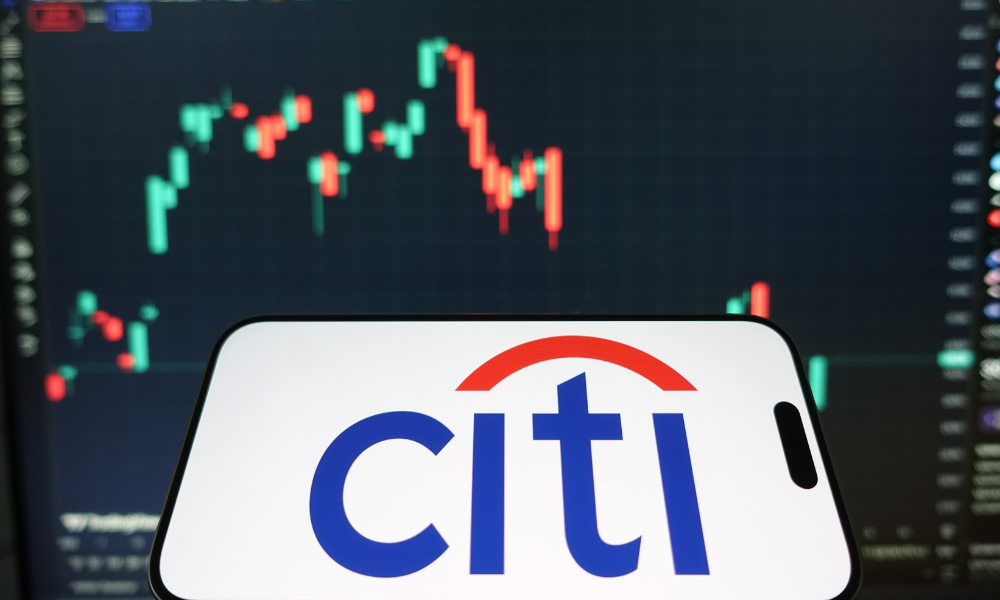

With US stocks trading at all-time highs despite a wealth of risks from President Donald Trump’s looming tariff deadline, war in the Middle East and rising economic uncertainty, some big-time money managers are growing concerned about where the market stands.
“If I’m honest, I’ve been a little uncomfortable with this rally,” Kate Moore, newly-appointed chief investment officer of Citigroup Inc.’s wealth division, said in a phone interview Thursday. “There are a number of warning flags that are not yet affecting investor sentiment and that I don’t understand why frankly are not on people’s near-term radars.”
Consider earnings expectations for Corporate America. At the start of the year, Wall Street analysts expected profits at S&P 500 Index companies to rise nearly 13%, according to Bloomberg Intelligence data. Less than six months later, that’s down to 7.1%.
Meanwhile, gains in the stock market are becoming increasingly concentrated around a few companies. The equal-weighted version of the S&P 500 is still 3% below the record it set six months ago as the regular version of the index races ahead on the strength of booming technology giants like Nvidia Corp., Microsoft Corp. and Meta Platforms Inc.
Moore, who joined Citi’s wealth business as CIO in February after serving as head of thematic strategy for BlackRock’s $50 billion global allocation business, is also concerned that the market is shrugging off the impact of tariffs. And she sees enthusiasm around potential interest rate cuts as misguided.
With Trump’s self-imposed July 9 tariff deadline quickly approaching, and few trade deals in sight, she says investors are naive to assume that companies won’t feel the impact of the levies considering the role globalization played in the margin expansion of the past two decades.
“We have to remember rate cuts would be response to not just cooling inflation, but also cooling overall activity,” she said. “And cooling overall activity is not the perfect environment for massive risk on.”
The S&P 500 is trading at an all-time high on Friday following stunning recovery that has added $10 trillion in value to US stocks. Just two months ago the index was teetering on the verge of a bear market. And risk appetite appears to be growing after the de-escalation of the conflict between Israel and Iran, the US and China reaching the framework of a trade agreement, and optimism rising that the Federal Reserve is ready to ease monetary policy.
But underneath the surface, cracks are emerging in the corporate and economic landscape. Wall Street is expecting second-quarter year-over-year profit growth by S&P 500 companies to be the weakest in two years at 2.8%, per Bloomberg Intelligence data. On Thursday, FedEx Corp. warned that its profit would be worse than expected this quarter as the impact of Trump’s trade war continues to weigh on its business.
Meanwhile, economic data show that US consumer spending in the first quarter grew at the slowest pace since the onset of the pandemic due to a sharp deceleration in outlays for a variety of services.
“The overwhelming risk in my mind is that we don’t get policy clarity,” Moore said. “The longer that uncertainty lasts — the longer we have flip-flops on policy and wait-and-see mileposts keeps moving — the more that leads companies to pull back on some of the investment and capital expenditures and hiring.”
Still, she remains confident in the sustainability of artificial intelligence and technology earnings, themes that have been resilient through multiple different parts of the economic cycle. She also thinks that with the economy deteriorating some, US large-cap companies remain “the most attractive house on the street” in terms of investment options.
Since joining Citi Wealth, Moore made a number of changes to the firm’s investment portfolios, including a reallocation from small-cap companies into large caps, citing expectations of a more challenging environment for the former group in terms of growth and margins. She also said she added gold “as ballast.”

Federal data show reports of at least $100,000 in losses skyrocketed to hit $445 million in 2024.

The fintech firms' latest additions, including veterans from Bloomberg and JPMorgan, come amid rising demand for alternative assets in the retirement space.

Steward Partners adds a $481 million Ohio-based team, while $35.7 billion &Partners expands its reach in Minnesota.

Emerson Equity and its advisor, Tony Barouti, were likely the largest sellers of defunct GWG L bonds.

Stan Gregor, Chairman & CEO of Summit Financial Holdings, explores how RIAs can meet growing demand for family office-style services among mass affluent clients through tax-first planning, technology, and collaboration—positioning firms for long-term success
Stan Gregor, Chairman & CEO of Summit Financial Holdings, explores how RIAs can meet growing demand for family office-style services among mass affluent clients through tax-first planning, technology, and collaboration—positioning firms for long-term success
Chris Vizzi, Co-Founder & Partner of South Coast Investment Advisors, LLC, shares how 2025 estate tax changes—$13.99M per person—offer more than tax savings. Learn how to pass on purpose, values, and vision to unite generations and give wealth lasting meaning
